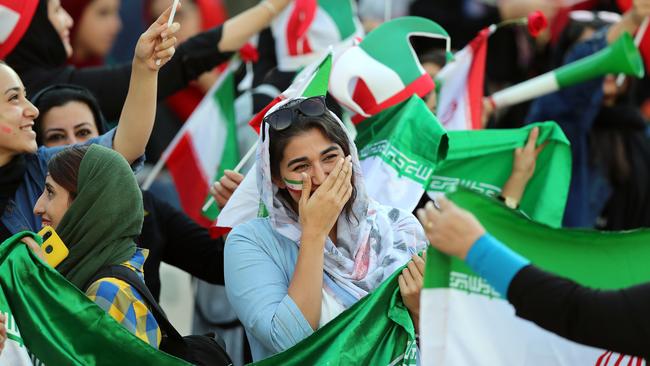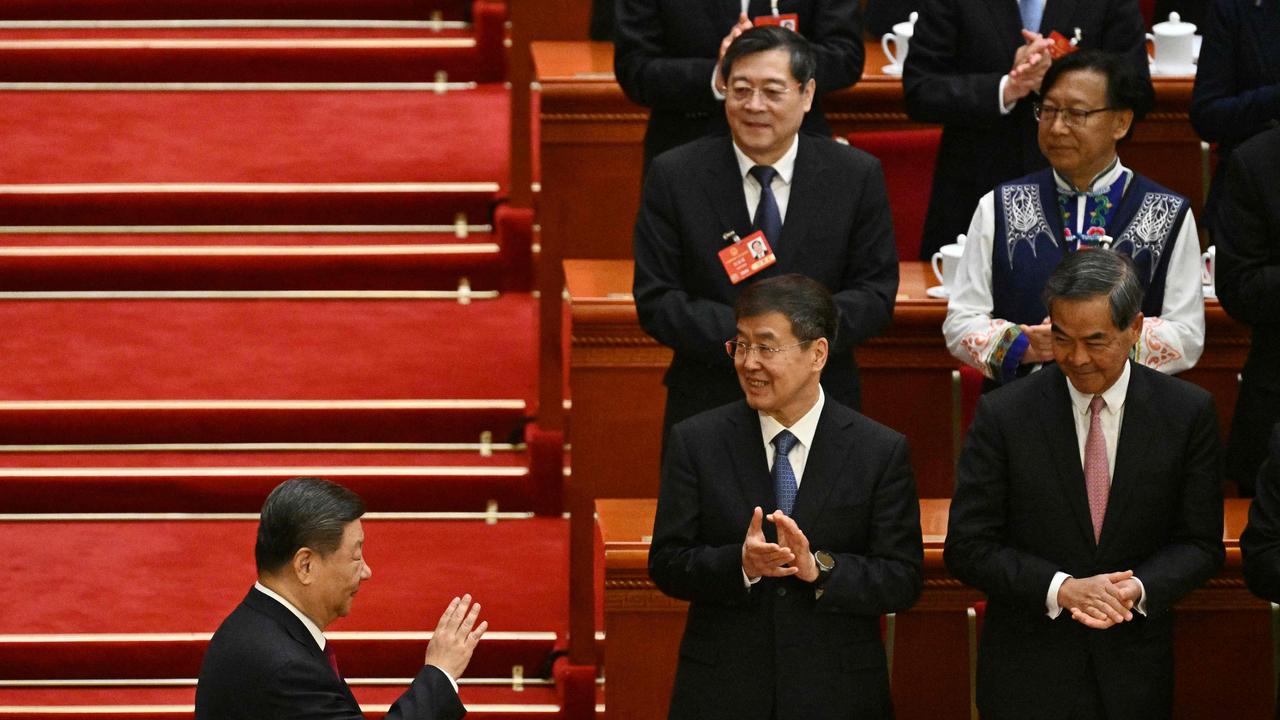Cleric rulers let Iranian women watch a soccer match
Thousands of Iranian women blew horns and cheered at the first FIFA soccer match they were allowed to freely attend in decades.

They had to sit well apart from the men, and the stadium was practically empty, but thousands of Iranian women in merry jester hats and face paint blew horns and cheered on Thursday at the first FIFA soccer match they were allowed to freely attend in decades.
In a victory in a decades-long fight by women in Iran to attend sporting events, they wrapped themselves in the country’s red, green and white and watched with excitement as Iran thrashed Cambodia 14-0 in a 2022 World Cup qualifier at Tehran’s Azadi, or Freedom, Stadium.
“We are so happy that finally we got the chance to go to the stadium. It’s an extraordinary feeling,” said Zahra Pashaei, a 29-year-old nurse who has known soccer games only from television. “At least for me, 22 or 23 years of longing and regret lies behind this.”
As one woman shouted from a passing minibus before the match: “We are here, finally!”
So far, Iran’s hardline Islamic theocracy is not willing to go as far as some women would like. Authorities announced they would allow women to attend international soccer matches only.
Women have been banned from many sporting events in Iran since 1981, during the early years of the country’s Islamic Revolution. Iran is the world’s only nation still barring women from matches after Saudi Arabia recently began admitting women.
Under pressure from FIFA, Iran let a carefully controlled number of women into the stadium, allocating them 4000 tickets in a venue that seats about 80,000, and arranged for 150 female security personnel in black chadors to watch them. They sat at least 200m from the few thousand men at the match. Iranian state television, which long has been controlled by hardliners, aired footage of women cheering, and commentators even acknowledged their presence.
“There can be no stopping or turning back now,” FIFA president Gianni Infantino said. “History teaches us that progress comes in stages, and this is just the beginning of a journey.”
Iran faced a ban from international matches if it didn’t allow women into the game. The pressure from FIFA and Iran’s soccer-loving public has grown since last month, when an Iranian woman detained for dressing as a man to sneak into a match set herself on fire and died upon learning she could get six months in prison. The self-immolation of 29-year-old Sahar Khodayari, who became known as the “Blue Girl” for her love of the team Esteghlal, shocked Iranian officials and the public.
At the match on Thursday, a reporter with the state-run IRNA news agency posted a video online of chador-wearing officers trying to grab a woman she said had a sign in Khodayari’s honour.
The crowd could be heard chanting, “Let her go!” The woman slipped away from officers and ran off.
AP



To join the conversation, please log in. Don't have an account? Register
Join the conversation, you are commenting as Logout